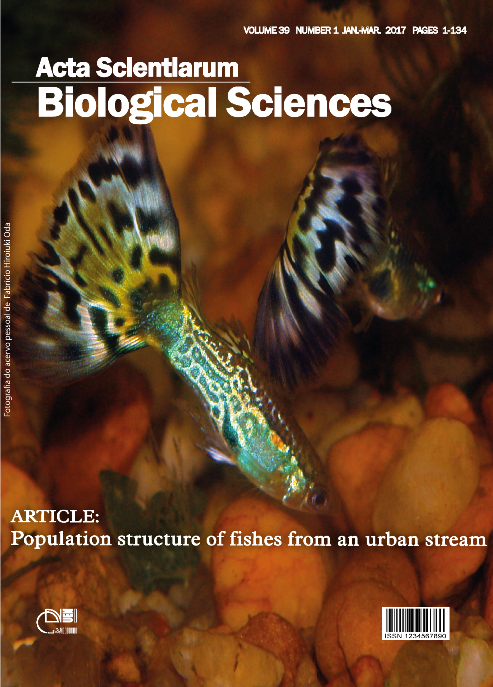<b>Shading effects on leaf life span and functional traits in the widespread species <i>Enterolobium contortisiliquum<i> (Vell.) Morong
Resumo
Enterolobium contortisiliquum occurs in native forests formations from southeast to northeast Brazil, and too in Argentina, Bolivia and Paraguay. The objective of this study was to evaluate shading effects in the early growth of E. contortisiliquum plants. We measured leaf gas exchange, chlorophyll content index, biomass allocation and leaf development in plants in sunny and shaded areas. The experiment was performed in Universidade Federal de Viçosa, campus Florestal, Minas Gerais, Brazil. To determine the effects of different light regimes (full sunlight and shade) on the growth of E. contortisiliquum plants, we divided plants into two groups: plants grown in a greenhouse under full sunlight, and plants grown under 70% shade tissue. E. contortisiliquum plants grown in full sunlight showed an increase in maximum net photosynthesis, root, stem, and leaf dry mass, root length, root/stem ratio, and length of the stem. However, E. contortisiliquum under shade showed larger specific leaf area, leaf area ratio, chlorophyll content, long leaf life span, and slow growth. These ecophysiological adjustments in sunny and shaded areas may explain the wide geographical distribution of E. contortisiliquum in many vegetation types.
Downloads
DECLARAÇÃO DE ORIGINALIDADE E DIREITOS AUTORAIS
Declaro que o presente artigo é original, não tendo sido submetido à publicação em qualquer outro periódico nacional ou internacional, quer seja em parte ou em sua totalidade.
Os direitos autorais pertencem exclusivamente aos autores. Os direitos de licenciamento utilizados pelo periódico é a licença Creative Commons Attribution 4.0 (CC BY 4.0): são permitidos o compartilhamento (cópia e distribuição do material em qualqer meio ou formato) e adaptação (remix, transformação e criação de material a partir do conteúdo assim licenciado para quaisquer fins, inclusive comerciais.
Recomenda-se a leitura desse link para maiores informações sobre o tema: fornecimento de créditos e referências de forma correta, entre outros detalhes cruciais para uso adequado do material licenciado.












1.png)




3.png)













